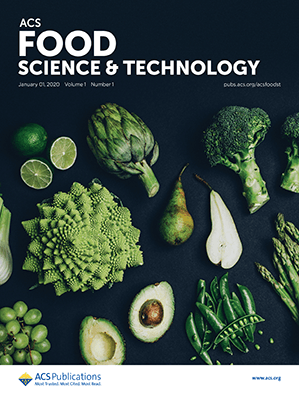A new study takes a molecular look at how milk proteins maintain their structure and influence the flavor and texture of your favorite coffee drinks.

June is National Dairy Month! Earlier, we brought you a collection of recent research articles all about cheese, but today we're turning our focus to milk—specifically, how milk works its magic when blended into coffee and other espresso-based beverages, creating that perfect swirl in your cup.
A recent article published in ACS Food Science & Technology takes a closer look into the reaction between milk and coffee, revealing how the proteins in milk are affected when mingled with coffee's robust world of flavors and compounds. Prior studies have suggested that these interactions could alter the taste and health benefits of coffee; however, the specifics of how milk and coffee interact on a molecular level have remained somewhat mysterious.
To unravel these mysteries, researchers Tobias Weidner and Fani Madzharova (Aarhus University, Denmark) used two-dimensional infrared (2D IR) spectroscopy to study milk proteins’ molecular structures and dynamics when mixed into a coffee beverage. This advanced technique spreads out the vibrational signals of molecules over two dimensions, which helps clarify which molecular changes occur when milk meets coffee.

Structure and Dynamics of Milk Proteins Interacting with Caffeine and Espresso Determined by Two-Dimensional Infrared Spectroscopy
DOI: 10.1021/acsfoodscitech.4c00070
The team looked at various combinations of milk and caffeine, and surprisingly, they found that the structural integrity of milk proteins remains largely unchanged in the presence of caffeine. Even when combined with real espresso, which introduces a plethora of other organic molecules, the proteins held their ground, maintaining their structure and dynamics. This stability suggests that the creamy texture and rich flavor we enjoy in milk-based coffee drinks are preserved at the molecular level.
The study also explored how caffeine might influence the dynamics of water molecules around these milk proteins, a factor that could potentially affect digestion and the drink's overall mouthfeel. The findings proved milk proteins to be remarkably resilient, showing no significant disruption in their behavior even in this altered environment. The authors note that understanding these interactions on a molecular level has practical implications for improving the beverages we enjoy daily, including developing new coffee recipes or dairy products designed to enhance flavor stability and nutritional content.
Access the full research article below for an even deeper dive into this study, and keep scrolling for related ACS Axial coverage on coffee, dairy, and more!